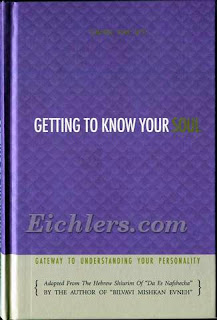In Rav Moshe Weinberger’s Perkei Avos shiurim that I listened to this past Sunday, while biking, he mentioned a few ideas that I’d like to expand upon, L’zecher Nishmas the 4th yahrzeit of Rivka bas Chaim Yosef a”h, my mother-in-law.
Rav Weinberger asks (in the 2st shiur) a question based on the Marahal’s Derech Chaim, “Why does the first mishna start of stating that Moshe received the Torah from Har Sinai, instead of stating that the Torah was received from Hashem?”
Har Sinai was more than just a place, it was a way of life. The location was chosen by Hashem, just like we, B’nai Yisrael were chosen by Hashem. Har Sinai was a constant, a visible force. It was also chosen because of its’ size and the middah of humility, as many of our children have learned in pre-school. To be someone that receives Hashem’s Torah, means that you are willing to receive from anyone who can teach you. It’s is we, like Moshe, who have to be willing to learn what anyone is willing to teach us, no matter if they are a Gadol or a Katon.
Peirkei Avos, Rav Weinberger says, is called “Avos” because the Torah within these Mishnayos are based on a mesorah that goes back and is rooted in the yashrus, the ehrlichkeit, middos, and derech eretz of our Avos and Imos. Avraham, Yitzchak, Yaaov, Sara, Rivka, Rochel, and Leah, like Har Sinai, taught us how to be m’kabal not just the Torah but a Torah lifestyle of middos tovos. Perkei Avos isn’t just the textbook for a course on how to “act frum” it’s teaches you how to live a frum life. The Avos and Imos, but the Avos gave over the passion of the one writing the textbook. My wife’s mother was a prime example of this. She knew what it meant to be frum, to love Hashem, to have a relationship with Hashem. She gave that over to those she knew, especially to Joanie.
Later in the 3rd shiur, Rav Weinberger gives an insight into the first thing said by the Anshei Knesses Gedolah, “Be deliberate in judgment.” This teaching is so important when viewed within context of what was happening to the generation at the that time. It was the end of the era of Nevu’ah, prophecy, and B’nai Yisrael felt that Hashem was abandoning them. The Mabit (Rav Moshe be Yosef of Tirani) says that being “deliberate in judgment” doesn’t refer to how we view other people, but how we view the events that happen to us in life.
Din is always related to examining every detail of a situation, looking at things from all sides. He says that we should always realize, even if the darkest times when we no longer have Naviim, that Hashem is always with us. This is what the Anshei Knesses Gedolah was teaching their generation.
When we are able to “be deliberate in judgment” and see how each detail in our life is connected to another detail, then the outcome can only be that Hashem is with us. This was a middah that Rivka bas Chaim Yosef had perfected. My mother-in-law never looked at tragedy, loss, or any difficulty as a punishment from Hashem. She always knew that Hashem was constantly with her, watching, guiding, and protecting. We should all be zoche to take this middah from Bubbie and giving it over to our own children.









